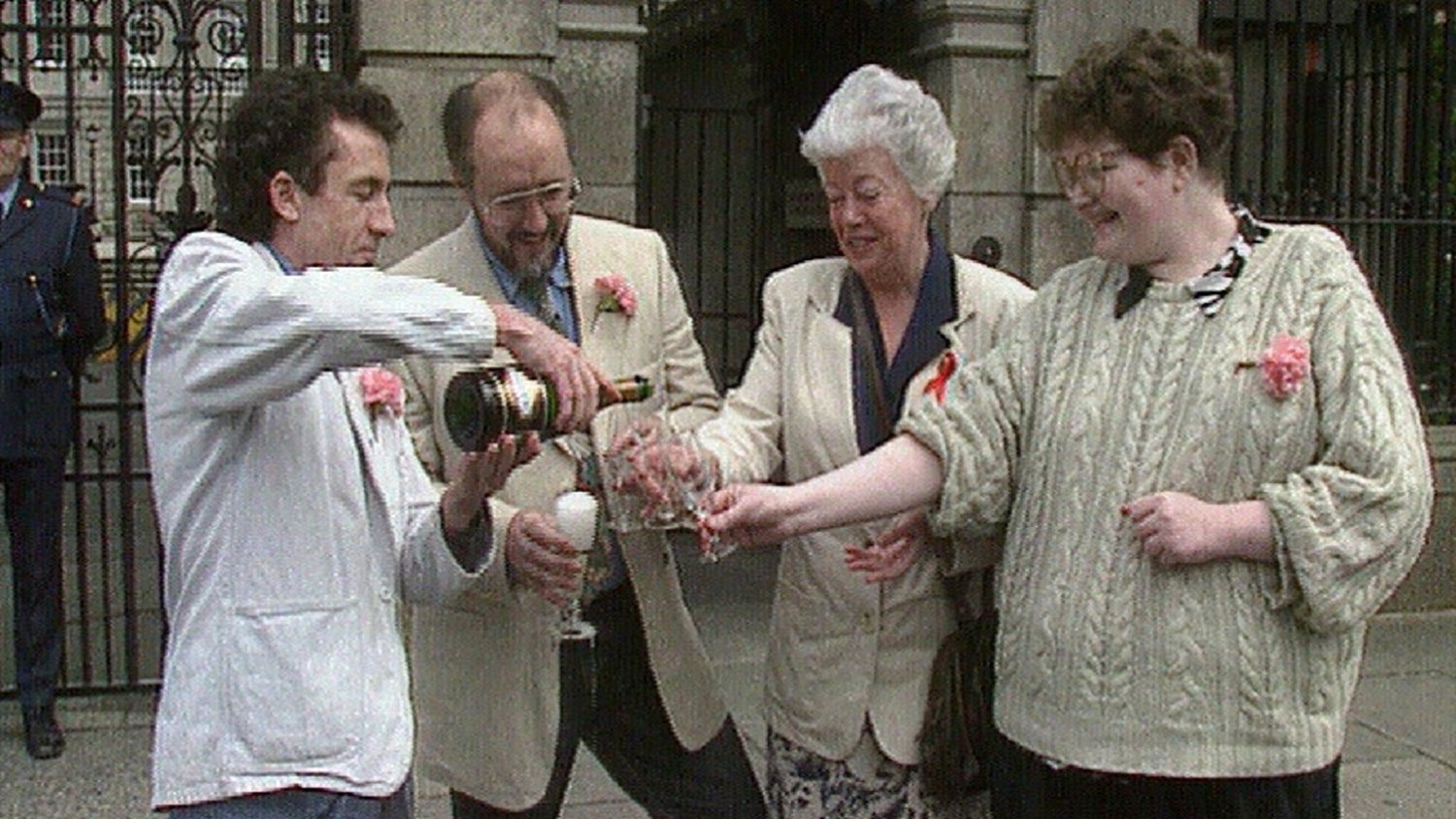In light of the closure of GLEN, we take a look back at some of the organisation’s biggest moments through its 29 years.
Founded in 1988, GLEN (Gay and Lesbian Equality Network)’s primary aim was to secure the equality of Ireland’s LGBT citizens campaigning for legislative changes. Over the years, the group has done just, that playing a pivotal role in securing Civil Partnership in 2009.
Campaign for Civil Partnership/ Marriage Equality (2009)
Though the organisation was criticised from some quarters for supporting civil partnership, what some saw as a ‘half measure’ brought in by a cautious and conservative government, the introduction of civil partnership was unquestionably a momentous event in the history Ireland and GLEN.
From 2000 onwards, members of GLEN met with advisory groups and politicians from successive governments, establishing various working groups “to bring to government legislative options for same-sex and other classes of relationships.”
After the Civil Partnership and Certain Rights of Cohabitants Act was signed into law by the President Mary McAleese in July 2010, GLEN joined the ranks of those calling for full civil marriage equality for LGBT people. The organisation joined forces with Marriage Equality (who had been opposed to civil partnership) and together founded Yes Equality, which began campaigning for marriage equality.

Fortunately, all the hard work by all the various groups and individual campaigners paid off when on May 23 Ireland’s referendum on marriage equality passed with 62% of the vote.
Workplace Diversity Champions
One of GLEN’s most successful campaigns was Diversity Champions, a not-for-profit programme designed specifically to help employers understand “the business case for being inclusive of their LGBT employees”.

The programme gave high-profile employers, like Microsoft and EY, the opportunity to be recognised as diversity champions and to nurture and celebrate existing LGBT staff within organisations. In 2015 The Workplace Equality Index Awards were introduced to recognise and reward organisations with a commitment to diversity.
“These organisations and leaders are playing an integral role in creating a business culture in Ireland that values the skills, ideas and creativity that LGBT people bring to the workplace,” GLEN co-chair Kieran Rose told the Irish Times after the group’s Workplace Equality Index Awards in 2016.
Bomb Threat!
Being visible advocates for the rights of LGBTs comes at a price, which GLEN discovered one afternoon in June 2016 when the organisation found themselves in the midst of a bomb scare.

GLEN’s staff were forced to called the emergency services after receiving a letter on June 18 which contained an unidentified blue powder and a note reading: ‘Goodbye’.
The emergency services quickly closed access to Exchange Street Upper, with all staff in the building being instructed to stay inside until further notice. GCN staff members, who share an office building with GLEN, were similarly stranded for the afternoon.
“There has been a speedy and professional response from the Fire Brigade, the army and the bomb squad and they have sought to reassure us that there is nothing untoward in the package,” Brian Sheehan, Director of GLEN, told media outlets at the time. The powder was later found to be non-toxic.
The entire building was evacuated (including the offices of GCN) before being cleared by the bomb squad.
Decriminalisation
The first issue of GCN published after the decriminalisation of homosexuality on July 7, 1993, featured an image of 4 people sharing a celebratory glass of champagne. Three of those four – Kieran Rose, Chris Robson and Suzy Byrne – were members of GLEN (the fourth was Phil Moore of an organisation called Parents Support.)

As GCN Editor Brian Finnegan writes of the organisation’s unique strategic campaigning:
“GLEN perfected their approach to achieving positive change, one that slotted in seamlessly with the way politics works in this country. Instead of agitating with marches and banners, GLEN were ‘inside jobbers’, lobbying ministers and TDs, pulling off seemingly small feats that all the time massaged the greasy political wheel into turning in queer favour.”
Bertie at GLEN offices
On April 3, 2006, Bertie Ahern became the first Taoiseach to ever attend a LGBT event when he launched GLEN’s ‘Building Sustainable Change’ strategy at the organisation’s offices.

“Sexual orientation cannot, and must not, be the basis of a second class citizenship,” said Ahern at the event, which outlined a five-year strategic programme aimed at achieving equality.
“Nowadays young lesbian and gay people, like their heterosexual peers have high expectations for themselves and their society and see no reason why their horizons should be limited” said then-GLEN director, Kieran Rose.
© 2017 GCN (Gay Community News). All rights reserved.

